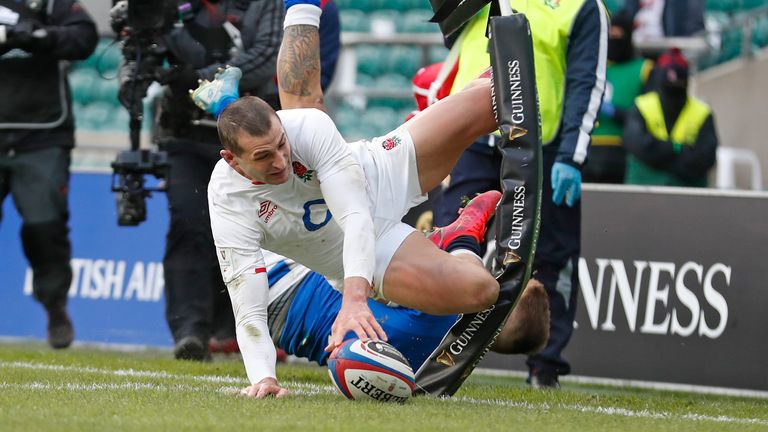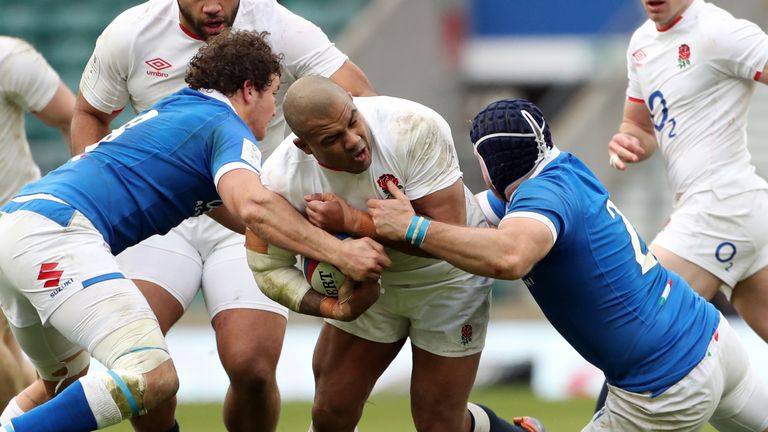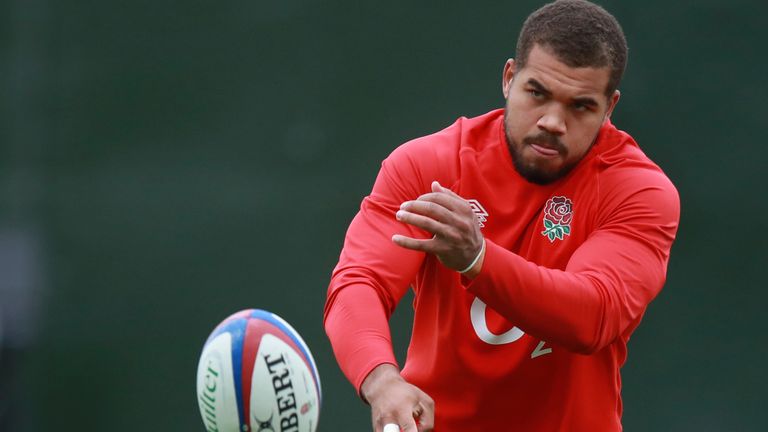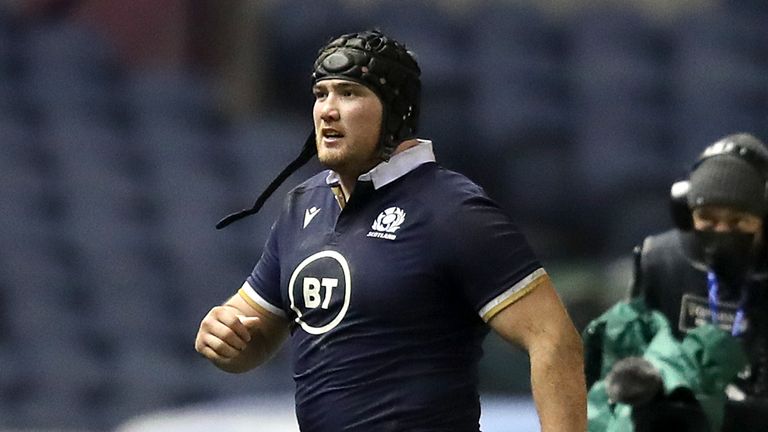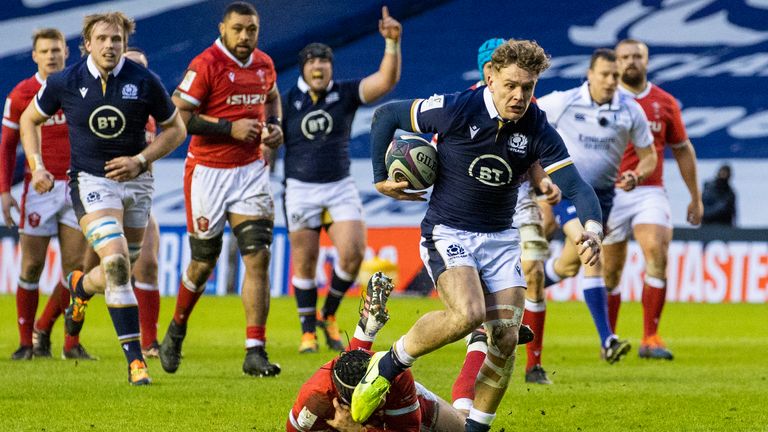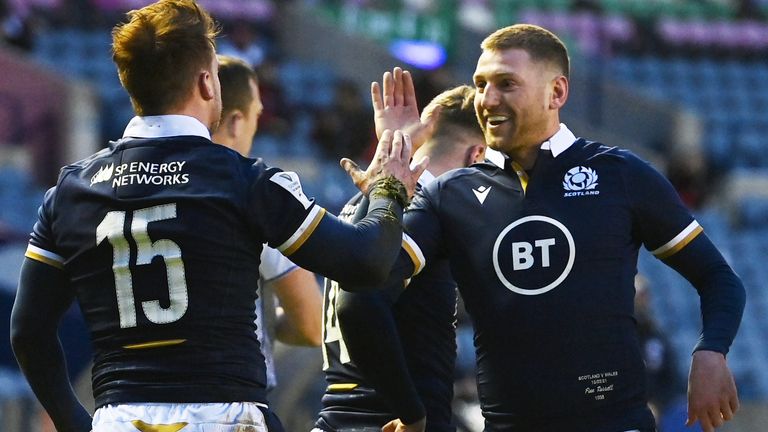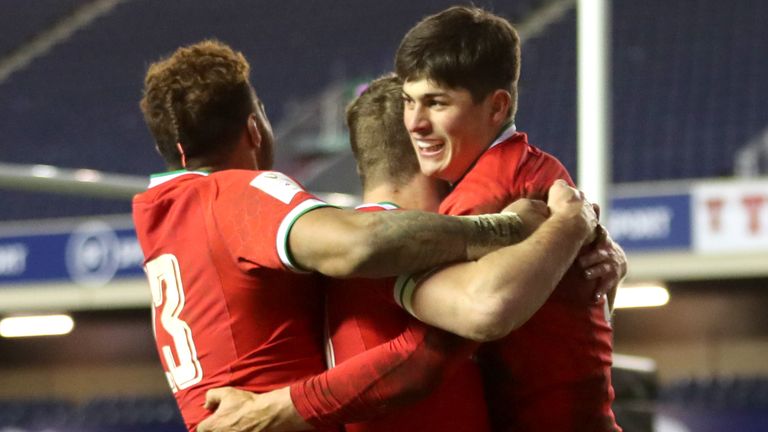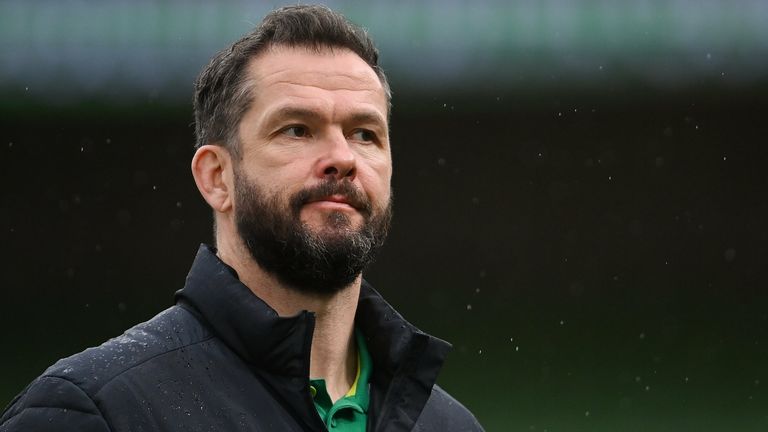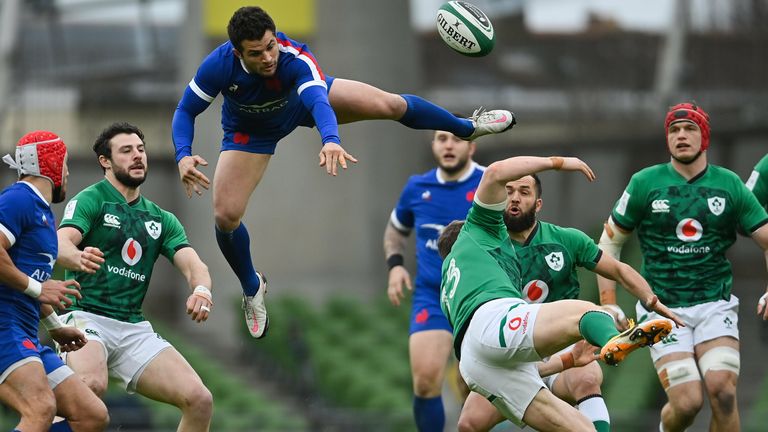Sir Ian McGeechan’s Six Nations review: England backline changes and Ireland’s attack issues
England responded to their Twickenham loss against Scotland with victory over Italy but Sir Ian McGeechan believes it was an opportunity missed for Eddie Jones’ side.
The legendary British and Irish Lions head coach explains what changes he would make to England’s backline and why Jones has a big decision to make at scrum-half.
He also analyses how Scotland let victory slip against Wales, who had a potential Lions bolter in their line-up, as well as Ireland’s problems in attack.
May’s flying finish
Jonny May’s try against Italy was very skilful. Once the law changed and brought the corner flag out of play, as long as you weren’t touching anything outside the line of touch, those finishes become very spectacular and actually very difficult to do.
The timing of everything he did made it a hugely impressive try.
On the other wing for England was one of my favourites. I like Anthony Watson. I think he’s got genuine pace, a sidestep and coming out the backfield he’s a very dangerous player.
I’m surprised England haven’t used him more. There is a question at the moment maybe to play him at full-back. I think Elliot Daly’s struggling with his game. He’s a top-quality player but it would be interesting to see the dynamic if Watson had a run at full-back.
Certainty when he gets the ball in his hands, he showed at the weekend just how potent an attacker and finisher he is.
I’d probably put him at number one tighthead at the moment, in what he can do and the potential impact he can have on a game. I thought he had a significant impact with the forwards at the weekend.
Sir Ian McGeechan on Kyle Sinckler
Missed opportunity for England
Tactically, if you’re bringing new players in you want to try and get them in the game.
In the Scotland game, I was surprised that there didn’t seem to be anything set up to allow Ollie Lawrence to get into the game easily – a good carry or just have the ball in his hands early, which I think helps when you’re in your first Six Nations game and still learning the trade.
I think that probably kept Lawrence on the periphery more.
Italy could well have been an opposition to play him. England were always going to beat them, and it would have given him an opportunity to be in the game. England started to move the ball one and two passes away from contact, keeping the ball in hand earlier, which all really would have helped him.
I would like to have seen Harry Randall on the bench as well, because Eddie Jones is going to have to make a call at nine to speed the game up over the next year or so. When you get a player who accelerates things at nine, it does make things very different outside him.
I thought Dan Robson showed that when he came on. England had a bit of a buzz about them, simply because the ball was getting into the midfield a little bit quicker.
Fagerson red was harsh
It’s difficult when a head moves. Zander Fagerson’s intention wasn’t to hit the head, there was a sort of late movement from Wyn Jones.
It probably should have been a yellow card. I just thought there were mitigating circumstances that you could have brought in. You’re looking at marginal things like that.
Full-on head contact – it would have been an immediate red card, no problem. It was one of those things that he was trying to clear the player and the head moved.
There was nothing he could do to react to it, so I just felt he was a bit unlucky. The decision was a bit harsh.
Turning pressure into points
Scotland gave Wales some initial momentum early on but I thought the 35 minutes of rugby they played after that was excellent.
They varied their kicking game, their running and passing game, and Wales were on the back foot.
That last five minutes of the first half and probably the first 10 minutes of the second half really took the momentum away from them.
They needed to have points at that time. Unfortunately they didn’t take what they had on offer, and Wales managed to score a good try against them. Suddenly there was a big momentum swing either side of half-time.
- Six Nations team of the week
- Watson withdraws ‘poor’ criticism of Fagerson red
The most important thing is getting points on the board when you’re in control of the game.
Scotland had scored two good tries, and I think they thought a third try would really separate the two teams on the scoreboard, but they underestimated the impact of taking a couple of penalties.
They were playing well, they were in charge, but it was key in that second half that in the first 10 minutes the scoreboard didn’t move. Ultimately that took the impact of what they’d been doing in rugby terms away and did have an effect on the outcome.
Creative spark
Finn Russell offers so much in the way that Scotland are playing.
He’s got confidence, he’s got the best attacking kicking game of any 10 in world rugby at the moment. He’s adding a variety to the way Scotland play when they do up the tempo.
He got a pass intercepted late on, but actually worked so hard to win the turnover to get the penalty. Then he almost sent Duhan van der Merwe away to score at the other end. They were a tap tackle away from a five-point win.
At the moment, the best rugby in the Six Nations is coming from Scotland and France. They are both playing well up front so their set-piece is secure.
Scotland want to be positive and some of their rugby comes out of their positivity of thinking and their chemistry.
Rees-Zammit benefitting from May
Is Louis Rees-Zammit in Lions contention? He has to be. Wales have handled him well, they had him part of the system 12 months ago.
He’s the first to admit he had a bit to learn. He has got Jonny May with him at Gloucester which I think has been helpful as well – not a bad thing to have! You can see he’s got an understanding now.
The biggest thing is mentally coming to the speed and intensity of international rugby, which is a step up from anything you play at club level. It’s different, no matter what others might say.
He’s made that transition very well and scored a very good try to win the game. But the other parts of his game – he put in a very good pass to set Liam Williams up for his try, and when Ali Price kicked the ball into the Welsh 22 with two minutes to go, he produced a massive kick to send Scotland back into their 22.
It wasn’t one thing he did. His game was very, very tidy at the weekend, and obviously match-winning.
Ireland’s attack issues
Ireland are trying to slightly change how they play, although it seemed tactically on Sunday that they wanted to keep France out of their half altogether.
Everything was based on a kicking game, and they were very circumspect on how they used the ball in hand.
They had 55 per cent possession in the game. Early on France did drop a few high balls and Ireland recovered possession, but it’s that transition. How quickly you can get it into areas and to runners that can then make a difference?
- Itoje: Education, ambition and potential Lions captaincy
- How Harlequins made LGBT+ history
In Garry Ringrose and Robbie Henshaw they’ve got two good centres that you can work off, and they’re just struggling for that continuity of when they get ball back, how they get runners freed up.
Ringrose has the capability of providing that spark in attack, although I’m not sure whether I’d put him at the level of Brian O’Driscoll yet. There’s a lot that happens around him, he’s a good ball carrier, he gets across the gainline. When you’ve got players like that, you want players who can play off him as well.
It’s not just about him, it’s actually getting him into a good position and then getting players to play off him.
Scotland and France are the two teams doing that best at the moment. When they do get a bit of room and a bit of space they’re not afraid to put the passes and the offloads in, which accelerates the attacks.
Look at the first French try at the weekend. It came from a set-piece lineout, but cumulatively the pace and the intensity was building, and the variety of the attack was because, having got the advantage, they were offloading or passing and Ireland didn’t have time to recover. They are not at that point yet.
I thought Rhys Ruddock played well at six, he did some good carries, but they just don’t seem to get their front-foot ball to the next phase where they’ve got players either running at arms and shoulders, where offloads and passes then become an easy option, which is what you always try and make them.
They’ve certainly got a back three. I thought James Lowe played well. It’s how you get the ball into their hands on a consistent basis.
Ireland are winning set-piece ball and Paul O’Connell has shown how the lineout can be improved. It’s back to that transition – having won the ball, getting it to your runners who can make the difference, which brings your forwards back into the game but also opens the opportunities in the wider channels.
Source: Read Full Article


